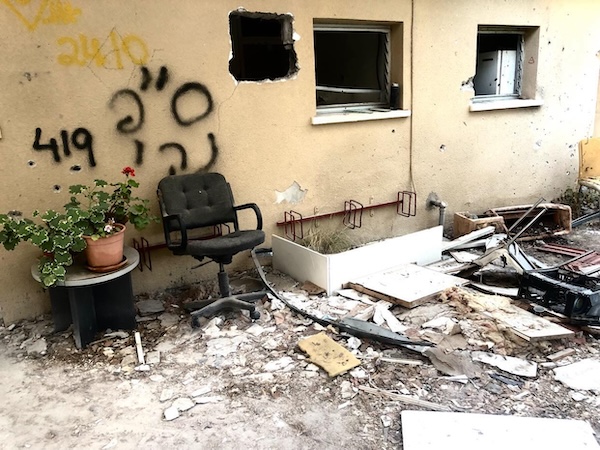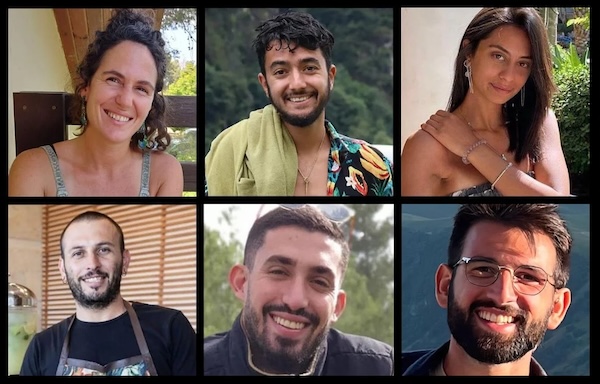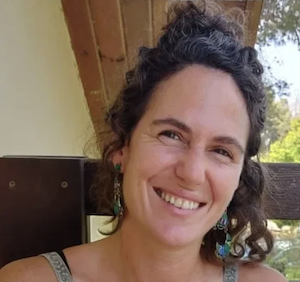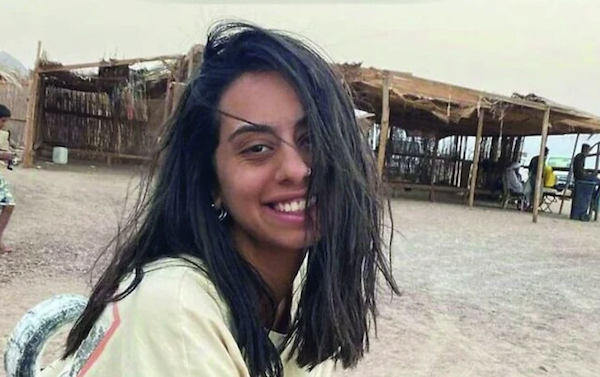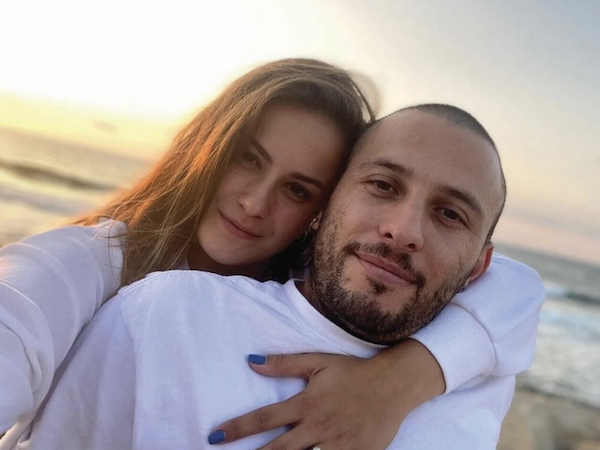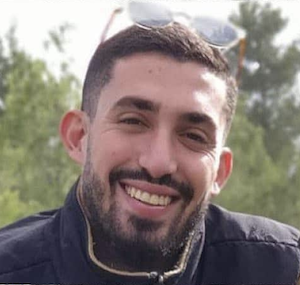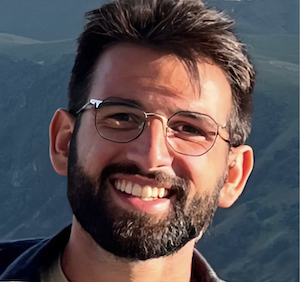The medical centre at Kibbutz Be’eri, where at least five people were murdered Oct. 7, 2023. (photo by Melanie Preston)
I’m sitting in the dining hall at Kibbutz Be’eri, as people begin to enter for their Sunday lunch at 11:39 a.m. Sunday is like Monday here in Israel, the work week being Sunday through Thursday.
I’d never spent time on a kibbutz until now, except for a few days on my Birthright trip, which was my introduction to Israel. But now, I’m not only on a kibbutz, but on Kibbutz Be’eri, less than five kilometres away from Gaza, less than a year after the worst terror attack on Israeli soil.
On Oct. 12, 2023, in the Times of Israel article “Be’eri’s residents are gone, but their homes attest to the horrors they endured,” there was this incredible statement by Doron Spielman from the Israel Defence Forces’ Spokesperson’s Unit: “In the same way that Auschwitz is the symbol of the Holocaust, Be’eri is going to become the symbol of the [Oct. 7] massacre. The level of inhumanity of Hamas fighters surprised even us, Israelis who had no illusions about what Hamas is.”
And, yet, here I am, bearing witness as approximately 200 kibbutz members of the 1,100 total, have returned to live here. This does not include any children, due to the war next door in Gaza, and, of course, the traumatic memories of Oct. 7.
The majority of Be’eri’s residents have just been moved from the Dead Sea-area hotels that housed them for the past year to Kibbutz Hatzerim, 45 minutes away from Be’eri, a wonderful community who rushed to build a new section of homes to accommodate them. This is where the families with children are now settling in and where school has just begun.
But there are many residents, couples with grown children, or singles without children, who have chosen to return to Be’eri. At first, they only commuted here to work during the week, but they are now choosing to stay full-time. They are determined to be back at home, to establish new routines, care for the grounds, hang out at the local pub and prove to the world and to the enemies who tried to destroy them and their spirit that they have done anything but that. The spirit in Be’eri is hurting, yes, but it is also fierce, and it will not be extinguished.
Last week, Israel’s Channel 12 aired a new documentary showing the horror that took place here on Black Saturday. It included footage from cameras all over the kibbutz, and the camera they kept returning to was right outside the dining hall in which I am writing right now.
How different it was to watch this documentary, how odd to watch the silent camera footage, how chilling, when I knew the reality on Oct. 7 was sirens blaring the entire day, due to thousands of rockets overhead, and screams from those being attacked all over Be’eri, in neighbouring communities and all over the nearby desert and forests, as young adults ran to try and escape the Nova music festival, many meeting a violent death.
I watched the tick, tick, tick of the digital clock in the corner of the TV screen on this documentary as Hamas terrorists methodically made their way through offices and the kibbutz’s medical centre, where at least five workers were massacred, and homes and children’s rooms, trapping people together and smoking and burning people to death, shooting them if they attempted escape, like Narkis Hand was forced to do when an RPG hit her home, setting it instantly on fire.
Narkis Hand was Thomas Hand’s former wife and the mother of his older children, Natali and Aiden. Thomas Hand’s younger daughter, Emily, then age 8, was kidnapped by Hamas terrorists with her friend Hila and Hila’s mother Raaya for 50 days, though he was originally told she had been killed.
The first and only time I had been to Be’eri before now was last February, when I visited with a different resident, Adam Rapoport, whose older brother Yonatan was murdered at some point between “6:29 a.m. and the end of day,” noted the documentary, as the silent clock in the upper left-hand corner went tick, tick, tick on Oct. 7.
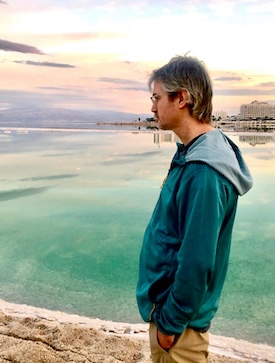
Like many others from these communities, Adam will never know exactly what happened to his brother that day, other than that he saved his kids’ lives by ordering them under the bed, where they would spend 11 hours listening to the horrors taking place in the peaceful community they’d grown up in. Six-year-old Aluma and 9-year-old Yosef would later tell their uncles that Dad had said he was going out to get the terrorists money at the ATM.
“There were just too many … bodies … to learn what happened, and that was just at Be’eri,” Adam told me back in February, at the Dead Sea hotel where he and other evacuees were staying, the day before he brought me here to bear witness.
This was an invasion into homes that lasted an entire day and involved such gore that I hesitate to go into detail.
It involved shooting a 3-month-old baby in the head, in front of her mother, in Kibbutz Be’eri, and burning an entire family alive from neighbouring Kibbutz Nir Oz, including all three young children.
It involved murdering parents in front of their children and then kidnapping the children – and these sons and daughters have still not returned home. Some are confirmed dead in Gaza and are bodies waiting to be brought back, like Adam’s best friend Itay Svirsky, which was how I initially met Adam and began learning about this community, while others are likely still alive in captivity, starving and suffering in ways human beings should not be permitted to suffer. But the Red Cross has done nothing for the hostages since the very beginning.
In Israel, we have waited, prayed, hoped and fought. We have gone to weekly rallies in Tel Aviv and Kiryat Gat, saying the hostages’ names and counting the days, chanting “Achshav, achshav, achshav.” (“Now, now, now.”)
We have had to silence our phones, as constant notifications appear, notifying us of the nonstop rockets entering our airspace and our cities from Hezbollah in Lebanon, the Houthis in Yemen and other groups in Iraq and Syria, while ongoing predictions about whether Iran will or won’t do something big (and when they will or won’t do it) are discussed and analyzed.
But, since arriving on Kibbutz Be’eri last month, I have felt a shift.
It’s a unique kind of optimism I have never quite seen. It’s pride and it’s love and it’s strength and it’s resolve and it’s “F—- you, we’re not leaving.” It’s coming from returning Kibbutz Be’eri members, it’s coming from people like myself who have come to Be’eri since Oct. 7 to help with the land and to work, to add to the life being rebuilt here and to help heal the collective broken heart of this community.
I fell in love with Israel because I fell in love with its people. I am here in Israel to tell the stories of what happened on Oct. 7, 2023, and is still happening, at every moment of every day for these incredible people, these people of Kibbutz Be’eri and elsewhere, who have come back to their lives and are attempting “normality” on their beautiful land.
Melanie Preston is a Canadian-born, American-raised, Jewish writer and traveler who discovered Israel at the age of 26, immigrated to the country and stayed for seven years. She flew to Israel alone on Nov. 16, 2023, from her home in Charlotte, NC, and was there to March of this year. She returned to Israel last month to continue writing about the hostages and impacts of October 7th on Israeli society. She intends to spend more time with the survivors of Kibbutz Be’eri as it is rebuilt. To support her work and read more of it, go to melanie-preston.com, or visit her GoFundMe (Raising Awareness on Israel’s War).

